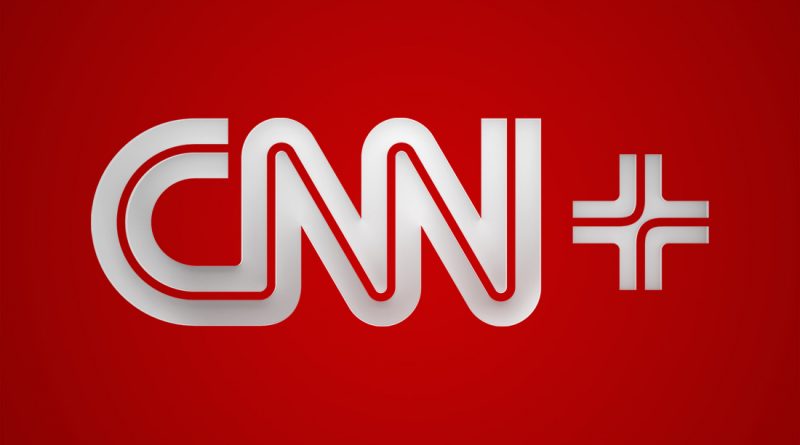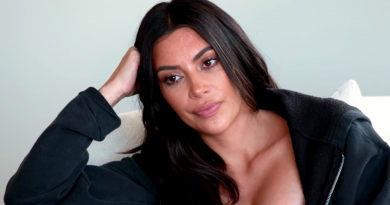People will pay $10 for OnlyFans but not $3 to see a dick on CNN Plus
As the not-ly anticipated digital platform, CNN Plus, launched in the crowded streaming world this week, CNN was hoping to bank on its roster of famous names to generate interest in a new channel of content offerings. After just one day, it appears the negative reviews outweigh the positive. Consumers had already written off CNN Plus before it even launched.
The problem, in part, is CNN’s reputation. It seems every other week there is some scandal plaguing the once-respected 24-hour news network. Its primetime lineup has been destroyed with the firing of Chris Cuomo and the numerous investigations and accusations against Don Lemon. As a network whose ratings continue to plummet, CNN had too much working against itself before CNN Plus could get a fair shot. Then again, many TV critics questioned the need for “another” CNN when viewers barely care about the original.
When I was a teenager and an aspiring journalist, CNN was on my little 13-inch bedroom TV all the time. Any time that “breaking news” banner appeared on screen I was hooked. It was fascinating to watch a plane make an emergency landing and see how it would play out. Ditto for those helicopter-tracked police chases where you’re on the edge of your seat wondering how it will end.
The Cable News Network was all about, well, news. You watched the story unfold in real time. It wasn’t dragged out for hours with endless commentary and over-and-over-again replays of the same footage. The story wasn’t dissected, analyzed and debated by any and every university professor or failed political hack or former government agent. Everything was shown in the moment, narrated by an impartial news anchor, with few cutaways. That was news.
Opinion had no place in the reporting. We didn’t tune in to see the anchor come up against his or her panel of guests. Why? Because there were no guest debates or discussions. There was no room for that at the anchor desk. There was only room for the news. Opinions were left to viewers to conclude.
At one time “breaking news” meant that it’s happening in that moment. It wasn’t hours old, it wasn’t something from yesterday or overnight. It was right then and there. When everything became “breaking news” it was like the boy crying wolf just to get attention. (Odd that one of CNN’s main stars is called Wolf.) CNN trained us to disregard the claim of “breaking news.” We saw it as an attention getter and not anything of importance.
As I type this in my office, I have Canada’s CBC News Network on my TV. There is a “breaking news” banner that just reads “Russia’s War on Ukraine” and they’re talking with some “expert” from Vanderbilt University. Unless Russia just invaded Vanderbilt University, why is some rando being interviewed on the Canadian network as “breaking news” about Russia? He’s giving his insight while B-roll from Ukraine is shown over and over again. There’s no live pictures from the scene and the dude isn’t commenting on something that’s happening right now. This is not breaking news.
Anyhow, back to CNN. My office TV was on CNN so much that the chyron (or “lower third” or “banner”) is burned into the screen. You can’t read any words but the shape of the on-screen graphic is noticeable at the bottom.
Like many people, I was fascinated with the coverage of Trump’s presidency. My TV would stay on CNN for hours at a time. In a way, I hoped Trump would get re-elected for the sheer entertainment. Then I wondered how CNN would fill its primetime programming if it didn’t have Trump to criticize for hours and hours on end.
There was something fun about panels of people arguing and taking shots at each other’s politics after Trump spoke or addressed the nation. That, too, eventually lost its novelty — until Jan. 6, of course. Even then, weeks later, once Trump was out of office and disappeared from the spotlight, CNN tried to reference him but it failed to maintain its viewership. And with that – save for the early days of the Russia-Ukraine conflict – viewers checked out and never looked back. Although, history proves people do go back to CNN when there is a global story such as the war overseas.
CNN lost its way. As viewers, we started to know too much about the hosts’ and panelists’ lives. The fact-based reporting gave way to them inserting their personal or political opinions and beliefs. This is perhaps where viewers lost trust in news reporting because you can’t go from giving undeniable facts and reporting to then a “Springer’s Final Thought” commentary at the end of your show.
In the first 10 minutes of Don Lemon’s nightly program, we’d witness him gushing, sometimes sparring, with former colleague Chris Cuomo. Their exchange frequently ended with “I love you”s. That’s the setup for a “news” show? Hosts telling each other that they love them? From that it segued to the “breaking news” of the hour. If the news was that urgent, why did it take a backseat for 10 minutes of bro’ing out with the two guys who, now that Cuomo’s been fired, are apparently at war?
Back in the day, I knew the names of CNN anchors — Aaron Brown, Carol Lin, Bernie Shaw, Judy Woodruff, Paula Zahn, Bill Hemmer, Daryn Kagan — and I didn’t know a damn thing about them. As a viewer, I didn’t care about their personal lives because I was there to watch them guide me through the stories of the day. That they have kids or an illness or love a new TV show didn’t occur to me. They weren’t the star of the newscast. They were the name behind it at that time, sure, but the show wasn’t about them.
In recent years when Brooke Baldwin’s afternoon show would air, I questioned why she sat beside a clear anchor desk with bare legs stretched out like she was about to demonstrate a hair-removal product. How, again, do I view that as “serious newswoman” when clearly it’s about her look and not what she factually reports? She could have the best education and the highest-regarded reputation in the business, but when she was purposely positioned to show what appeared to be sex appeal, the show wasn’t about news or politics or current events anymore. It was about her attracting you. News shouldn’t earn your trust because she has nice legs.
Later, when I’d watch Baldwin get sloppy drunk on CNN’s New Year’s Eve specials, it again made me wonder how we are expected to separate that getting-shit-faced-with-viewers frat-party revelry from the buttoned-up anchor reporting on a nationwide meth crisis the day before. Quite simply, we can’t make the distinction once those lines have been blurred.
Moreover, there’s no takebacks once Don Lemon says he’s not interested in “broke dick” anymore. On New Year’s Eve he’s drunk and talking dick, and the next night he’s back at the desk (provided he didn’t call in sick with a hangover) walking you through a national tragedy – or literally crying because his boss was fired.
You get whiplash. Is he our friend who we’re supposed to care about or is he an impartial authority giving us facts? Never the two shall meet, I believe. If we get too comfortable with him, that’s where we accept his opinion and commentary as the gospel, when it isn’t.
We live in a world where your status is based on – read that as: judged by – the number of your social media followers. The more people who follow you, the bigger your reach — at least on social media. Problem is, someone like Anderson Cooper collectively has millions of followers across his profiles yet can’t attract a million viewers to his CNN primetime show.
On CNN Plus, Cooper is starring in a show about parenting. As much as Cooper will try to come across as an everyday parent who’s just like you and your partner, the reality is he’s a millionaire with staff who make his parenting role completely different than yours. It makes you wonder how CNN decided who would host what shows for the platform. “Anderson is a new dad so he can host a show about parenting. Jake Tapper likes reading so he can host a book club.” To viewers, it seems random.
It’s like having Paula Deen host a finance show or Eddie Murphy front a documentary on the art of origami. Viewers pause and say, “I don’t see the connection.” Moreover, it makes them draw an immediate conclusion without even tuning in: I don’t want to watch Jake Tapper talk about books.
It’s not a leap when, say, Jay Leno, who famously loves classic autos, hosts a show about cars. We get that. It makes sense. It’s what he’s known for in addition to being a comedian. But, for someone like Tapper, who’s branded as a politics guy, it’s a stretch to see him sitting down with Dolly Parton and talking about books. Is it workable? I guess we’ll see. The bigger question is: Will viewers give it a chance? And then a second chance, and a third chance, and so on?
Having been in broadcasting for nearly 20 years, I’ve long been known, within certain circles, anyway, as an entertainment reporter. I chat with celebrities on the radio, I cover red carpet events. Any sort of content in that arena would be a comfortable transition for my audience. That’s how they know me. (In the height of my radio syndication, I was heard by as many people as some CNN primetime shows have viewers – averaging approximately 300,000. I was only on 24 smaller radio stations, while CNN is a national broadcaster.) The loyal listeners would likely follow me to a different genre or concept but they would think, “Why is this guy suddenly hosting a cooking show when we’ve never heard him talk about food?” And on my radio shows I have the freedom to talk about whatever the hell I want so people know my interests. Fact: Cooking is not one of them.
Another feature that was touted as being CNN Plus’s claim to fame is the interactive Q-and-A sessions where viewers can ask questions of the on-air hosts and guests. While not groundbreaking, that arena has long existed. It’s called tweeting someone. Yes, for many years people have been able to “tweet at” a person to get their attention. Sure, it’s not always answered but that barrier of accessibility was removed with the introduction of social media into our lives. (I slid into Cooper’s DMs after seeing him speak in my hometown a couple years ago.)
The crowded streaming world will make it challenging for any new arrival. Netflix has long been declared the winner amongst the services, with Disney in hot pursuit. They have the reputation of already creating diverse content. Ditto for NBC’s Peacock. They’re not one-trick ponies that have to breakaway from a genre to convince viewers they have flexibility. People already know that NBC can produce news and sports and entertainment. Consumers didn’t have to “give them a shot” because the company was already doing it; they just branched out on a new platform. CNN must shake its formerly-serious-news-turned-sensational-commentary-turned-scandal-plagued reputation and make viewers want more from it – and by more, I mean anything, because CNN doesn’t have widespread loyalty with an audience.
Our company owns a men’s swimwear and underwear store. We’ve made great money in e-commerce and recently jumped into the subscription-model business thanks to the popularity of OnlyFans. We’ve long known that sex sells so we dipped a toe. In addition to playful engagement on social media, we dove into OnlyFans to post racy content of our models in and out of their skimpy outfits.
There’s no hardcore porn, there’s no erect penises. It’s simply pictures of men in various stages of undress from our product line. Think of it as the after-hours posts Instagram won’t allow.
Our debate was how much we should charge subscribers. We factored in what content creators are charging for their hardcore content and the lesser-known G-rated stuff that’s also on the platform. Our offerings fall in the middle. In the end, we settled on $9.99 per month, with an introductory rate for the first month, much like CNN Plus did with its launch. We have a dedicated following — admittedly not as big as CNN’s dwindling audience — but they have demonstrated their loyalty over the years. Much to our surprise, they embraced the new channel and quickly became monthly subscribers.
So, while CNN Plus is offering hundreds of hours of original programming each month and access to thousands of hours from its CNN archives, people scoff at the idea of paying only $2.99 per month (based on its introductory price) for that entire offering fronted by big-name celebs. We show a few flaccid penises in photos taken two years ago and hit the jackpot. I’m not sure if that’s saying something about CNN or what the consumer landscape appreciates.
CNN can’t pry $3 from the consumer for its diverse programming collection but we have no trouble getting $10 for seven nude pictures posted every month. No to paying less than a Starbucks coffee for a month’s worth of entertainment and news programming from a major broadcast network, yes to 10 bucks for random pictures of men giving a cheeky grin while sliding down their underwear.
What a world, hey?
(BTW- I purposely didn’t identify the CNN “dick” as teased in the headline. You can decide who it is.)



